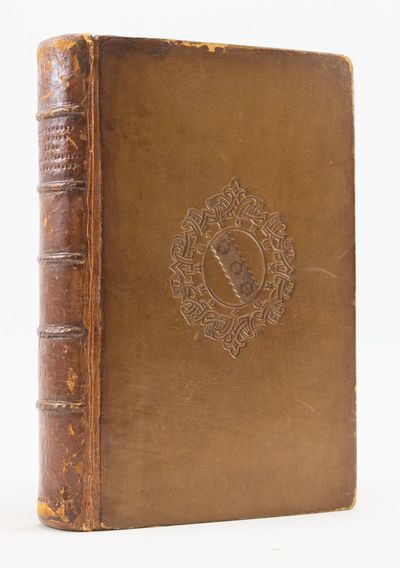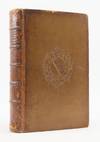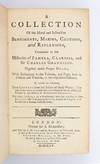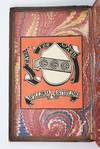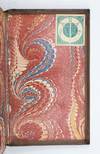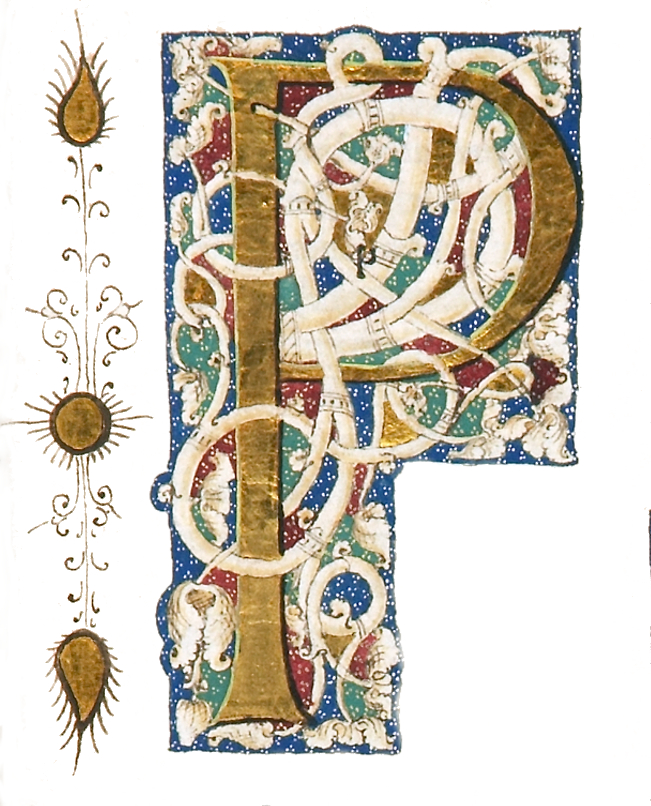first edition
1755 · London
by RICHARDSON, SAMUEL
London: Printed for S. Richardson, 1755. FIRST EDITION. 170 x 100 mm. (6 3/4 x 4"). x, 410 pp.
19th century smooth calf by J. Leighton (stamp-signed on the front free endpaper), covers blind-stamped with armorial designs, raised bands, carefully rebacked, retaining much of the original backstrip, all edges dyed red. Each section with attractive woodcut headpieces and tailpieces, and with decorative initials beginning each. Bookplate of William Stirling on the front pastedown; a blue bookplate reading "A N A &c. KEIR" (Keir House being near Stirling in central Scotland) on the rear pastedown. Sale 47; Rothschild 1753; ESTC T58996. See Day, "History (truncated)
19th century smooth calf by J. Leighton (stamp-signed on the front free endpaper), covers blind-stamped with armorial designs, raised bands, carefully rebacked, retaining much of the original backstrip, all edges dyed red. Each section with attractive woodcut headpieces and tailpieces, and with decorative initials beginning each. Bookplate of William Stirling on the front pastedown; a blue bookplate reading "A N A &c. KEIR" (Keir House being near Stirling in central Scotland) on the rear pastedown. Sale 47; Rothschild 1753; ESTC T58996. See Day, "History (truncated)
